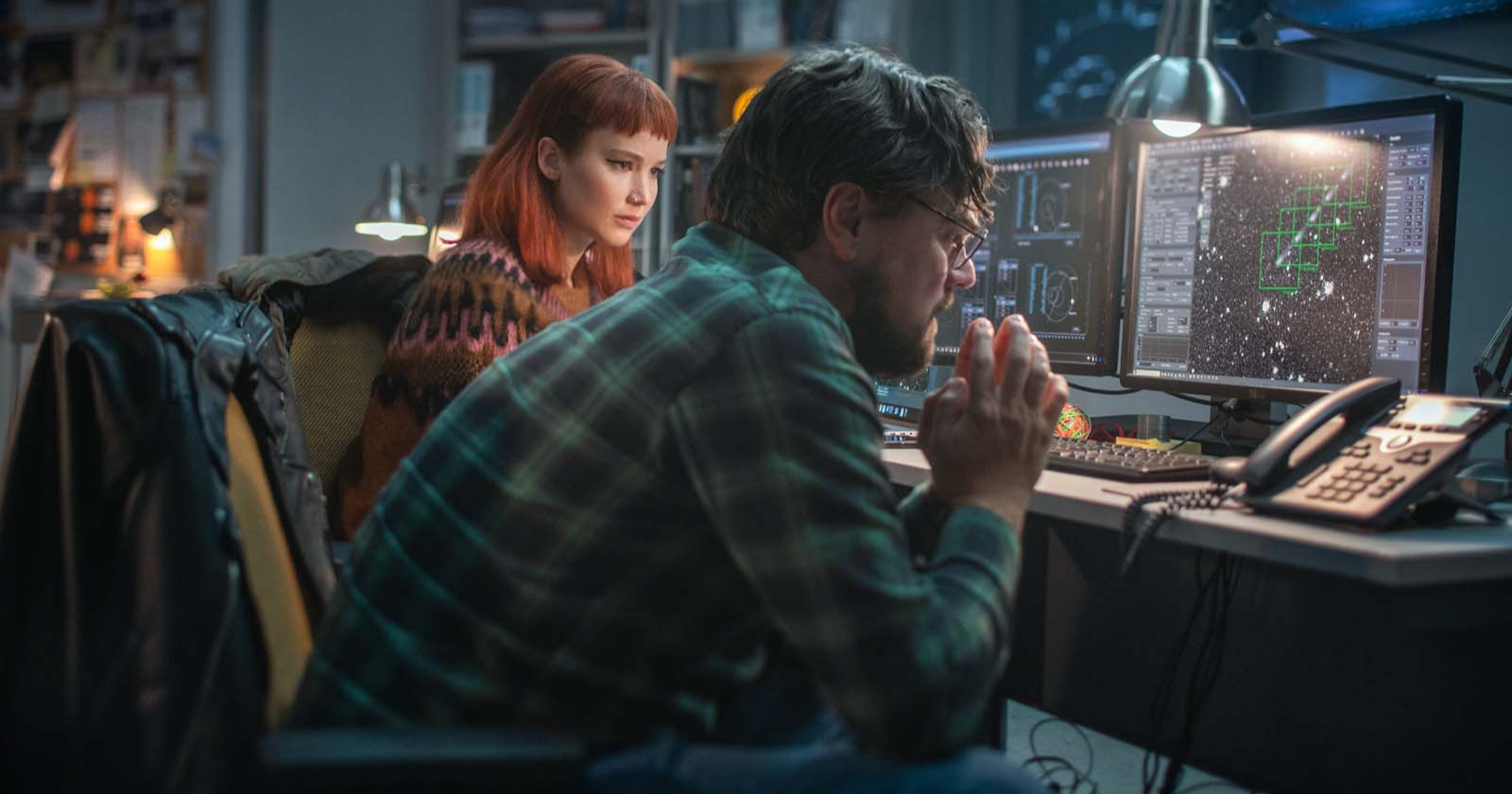
“If you think about it, we really had everything, didn’t we?” This sentence from Doctor Randall Mindy, main character of the movie Don’t Look Up: Cosmic Denial, sounds like one last regret. A few seconds after he speaks, the astronomer and the rest of humanity are decimated by the fall of a comet to Earth. A disaster predicted by Randall and his PhD student Kate Dibiasky, but which no political will could prevent. This satirical film by Adam McKay paints a metaphor for inertia surrounding the current climate crisis. To show that there is still time to act, Netflix, supported by the director, has decided to let experts work on alternative and more optimistic endings.
However, Randall and Kate, played by Leonardo DiCaprio and Jennifer Lawrence respectively, had multiplied the warnings. In vain. Adam McKay’s film ends with the destruction of the earth and with it humanity. A tragic ending should awaken us to a reality, “this reality is of course the inevitable impact of the comet”, explains McKay in an article published Friday, March 18 on the Netflix platform site. But did this catastrophic scenario necessarily lead to a catastrophe to raise awareness? This question haunted the director who decided to partner with Netflix to ask scientists, activists and climate experts to imagine different endings.
Purpose of the operation: to show that mobilization is possible and even absolutely necessary.“We are not a passive audience in the face of this climate crisis. We can perform. We can make choices”said director Adam McKay.
Youth, migrants and cooperation
Among the aspiring screenwriters invited for the occasion, we find in particular Valérie Masson-Delmotte, paleoclimatologist and co-chair of the IPCC (group of UN climate experts). In his proposal, the three heroes of the film manage to counteract the political passivity of those in power by establishing their own collective of young scientists. From India to South Africa, young people and teenagers from all over the world are pooling their knowledge to design a device that could divert the comet from its fatal orbit. And it works, although some debris still ends up on the planet. A global aid network is being set up to support affected and vulnerable communities.
#JustLookUpand build different results!
@NadaCaud @leitzell@mendiluce @RevYearwood @EricHolthaus @JaneGoodallInst @CFigueres @lizwathuti @HeatherMcTeer @Ayishas12 @WRIClimate @SharanBurrow @CntrClimSec @CSRisks @BrownGirl_Green @YECAction https://t.co/7GnQPmZoN8
— Dr. Valérie Masson-Delmotte (@valmasdel) March 18, 2022
In the screenplay by Ayisha Siddiqa, environmentalist and co-founder of the Polluters Out coalition, the saviors and saviors of humanity are christened “Guardians of the Earth”. In his version, the activist highlights the mobilization of young migrants from around the world who are working on a way to divert the comet. Once again, their mission is a success and these young people then turn to another existential crisis: climate change.
The meteorologist Eric Holthaus imagines the formation of a “Comet World Council”, accompanied by the leaders of the different countries of the world. Every citizen is called upon to urgently build a space launcher that can deflect the meteorite. International cooperation bears fruit and humanity is saved. “But the greatest victory is the unification of humanity in a common and shared goal: solidarity in these difficult times”says the screenplay, quoted in this Netflix article.
Mobilizations following the film
The initiative of Adam McKay and Netflix aims to show that another future is possible and that it is up to us to create it. It’s also a way to help fight the growing sense of helplessness and eco-anxiety, especially among younger generations.
The film has already inspired activists and environmentalists around the world. In France, on Saturday 12 March, climate marches called “Look Up” were organized all over the territory, referring directly to the film. These demonstrations, supported by more than 450 NGOs, associations and political organizations, gathered thousands of people.
You can find the different scenarios devised for Netflix by reading this article (in English).